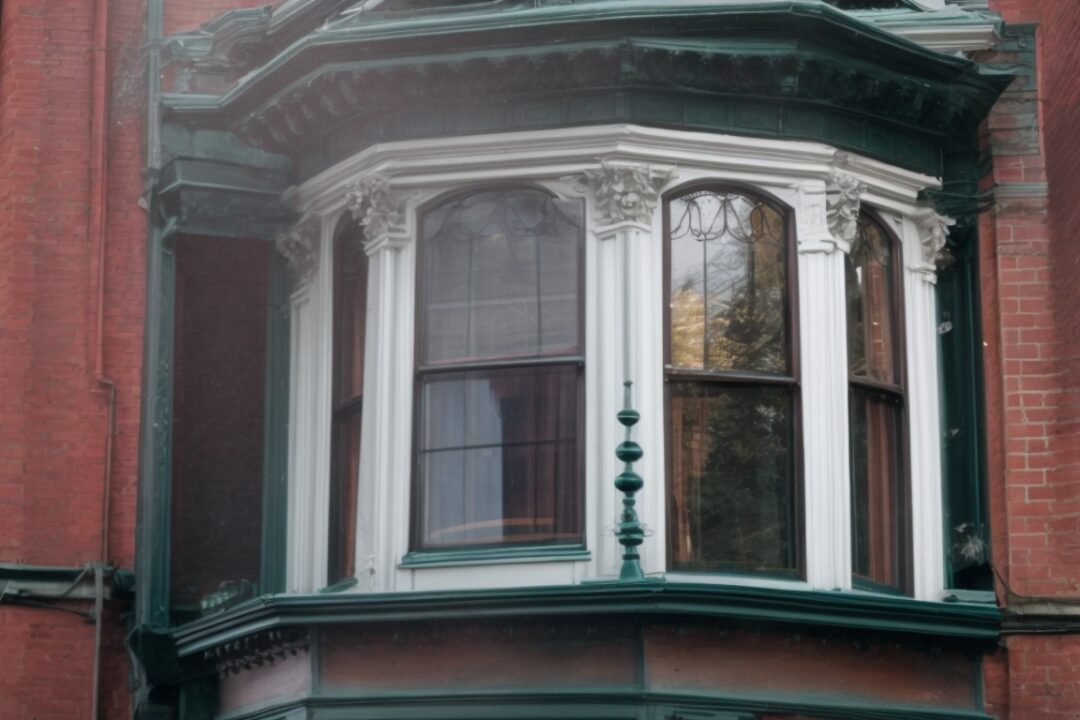
The Critical Role of Climate-Control Window Film in Boston
In Boston, where the weather can swing from the sweltering summer heat to frigid winter cold, residents face a unique challenge in maintaining comfortable, energy-efficient homes. It’s here that the significance of window film in Boston becomes especially pronounced. Despite the clear benefits, many homeowners and businesses remain unaware of the impact that the right window film can have on their buildings’ energy consumption and overall comfort.
The importance of energy efficiency in Boston cannot be overstated. With seasonal extremes pushing heating and cooling systems to their limits, the demand for energy-efficient solutions has never been higher. Window film presents a solution that is both effective and economical, capable of significantly reducing energy bills by minimizing heat loss during the winter and keeping interiors cool during the summer. Yet, the conversation around energy conservation in Boston seldom includes the pivotal role of climate-control window films.
As we explore ways to enhance energy efficiency and comfort in our homes and workplaces, incorporating technology like window film into our strategies becomes essential. Not only does it play a critical role in achieving a more sustainable lifestyle, but it also promotes a healthier living environment by filtering out harmful UV rays and reducing glare. The time has come for a shift in perspective, where the benefits of window film in Boston’s seasonal extremes are widely recognized and utilized. Introducing such solutions into mainstream consciousness could mark a significant step forward in our quest for more energy-efficient living spaces.
Maximizing Energy Efficiency with Window Film in Boston
Boston’s diverse climate, characterized by hot summers and cold winters, presents a unique challenge for its residents – maintaining energy efficiency throughout the year. The primary issue stems from the substantial energy required to heat and cool homes and offices, adapting to the city’s seasonal extremes. Most conventional windows offer minimal insulation, leading to significant energy loss, especially during Boston’s harsh winters and humid summers. This not only increases the energy bills but also contributes to a larger carbon footprint.
Moreover, the reliance on outdated or inefficient window solutions exacerbates the struggle to maintain a comfortable indoor environment, often resulting in overuse of heating and cooling systems. The introduction of climate-control window films offers a promising solution to this problem, providing an additional layer of insulation to existing windows. However, awareness and understanding of this energy-efficient upgrade are still lacking among many Boston residents, highlighting the need for more comprehensive information and guidance on maximizing energy efficiency with window film.
Startling Energy Costs and Efficiency in Boston
In Boston, where the battle against seasonal extremes is ongoing, homes without climate-control window film face an uphill energy efficiency battle. A startling fact is that windows alone can account for up to 30% of residential heat loss during winter. In the summer, the same windows allow in UV rays that hike up air conditioning use by a significant percentage, often resulting in energy bills that are 25% higher than homes with energy-saving window films. This data underscores the critical role window films play in not only preserving energy but also in significantly reducing unnecessary energy expenditures in Boston’s harsh climate.
Maximizing Energy Efficiency: The Role of Climate-Control Window Films in Boston’s Seasonal Extremes
Boston’s varied climate presents a unique challenge to homeowners aiming to maintain comfortable, energy-efficient homes throughout the year. The problem with conventional window solutions in Boston is their inadequate performance in the face of the city’s seasonal extremes. This inefficiency not only affects homeowners’ comfort but significantly increases their energy consumption and costs.
In the blistering summers, traditional windows allow excessive heat to penetrate homes, making air conditioning systems work overtime. This relentless demand on cooling systems not only leads to uncomfortable indoor temperatures but also spikes in utility bills. Winter brings the opposite challenge: standard windows fail to retain heat, resulting in cold drafts and an overreliance on heating systems. Again, this inefficiency burdens homeowners with inflated energy expenses.
Furthermore, the problem extends beyond mere discomfort and financial strain. Inefficient windows contribute to increased carbon footprints, with homes requiring more energy to stay warm or cool. This energy overuse directly contrasts with Boston residents’ growing desire for more sustainable living options.
The inefficiency of conventional windows in coping with Boston’s harsh climate illuminates a pressing need for a solution that can withstand the city’s weather without compromising on comfort or sustainability. Hence, the exploration of alternatives becomes not just a matter of personal comfort or economic savings but a step towards more responsible and environmentally friendly homeownership. One such solution is the adoption of climate-control window films.
Maximizing Energy Efficiency: The Role of Climate-Control Window Films in Boston’s Seasonal Extremes
Living in Boston offers a unique experience of four distinct seasons, each with its own set of beauty and challenges. While residents relish the changing landscapes, the seasonal extremes in temperature create a significant problem for households striving to maintain a comfortable and energy-efficient home environment. The core issue lies in how traditional windows struggle to insulate homes against the biting cold of Boston’s winters and the sweltering heat of its summers.
Winter months often see heating costs skyrocket as residents fight to keep the cold at bay, only for the situation to reverse in summer, where air conditioning systems work overtime to combat the infiltration of heat. This continuous reliance on heating and cooling systems not only leads to inflated energy bills but also contributes to the larger issue of environmental degradation. The problem, therefore, is two-fold: the immediate financial burden on households and the long-term impact on the environment. Understanding this problem is crucial for Boston residents to consider alternatives like climate-control window films, which offer a promising solution to enhance energy efficiency and comfort year-round.
Boosting Efficiency with Window Films in Boston Homes
In the vibrant Back Bay area of Boston, the Greene family struggled with high energy bills due to extreme winter cold and summer heat. They decided to install climate-control window films in their Victorian home. This not only added to the aesthetic but significantly reduced their energy consumption. A year after installation, their energy bills dropped by 30%, showcasing the effectiveness of window films in combating Boston’s seasonal extremes and underscoring the importance of such an investment for energy efficiency and cost savings.
The Consequences of Ignoring the Importance of Climate-Control Window Film in Boston
Ignoring the installation of climate-control window film, especially in a city like Boston with its notorious seasonal extremes, can have severe negative impacts on both homeowners and business owners alike. The benefits of this technology go beyond mere comfort, directly affecting the financial and environmental aspects of maintaining a property.
Without the use of climate-control window film, individuals may find their energy costs skyrocketing. During winter, the lack of proper insulation can lead to increased heating expenses as warm indoor air escapes through the windows. Conversely, in the summer months, the absence of window film can cause cooling systems to work overtime to combat the heat entering through untreated windows, again leading to a significant rise in energy consumption and costs.
Moreover, the environmental impact cannot be overstated. By increasing energy consumption, properties without climate-control window film contribute to higher carbon emissions, playing a part in environmental degradation. Therefore, ignoring the need for such a solution not only burdens individuals financially but also compromises their commitment to a more sustainable lifestyle.
Economic Impact of Skipping Window Film in Boston
For homeowners in Boston, neglecting to install climate-control window film can have significant economic repercussions. The seasonal extremes in Boston mean heavy reliance on heating systems in the winter and cooling systems in the summer. Without the energy-saving benefits of window film, residents may see a marked increase in their utility bills due to the extra energy required to maintain comfortable indoor temperatures. Over time, this additional cost can accumulate, affecting the household’s overall economic stability and unnecessarily straining their budget.
Maximizing Energy Efficiency with Climate-Control Window Film in Boston
In a city famous for its seasonal extremes, Bostonians face unique challenges in keeping their indoor environments comfortable while also managing energy costs. Climate-control window film stands out as a pivotal solution addressing these hurdles head-on, especially considering Boston’s harsh winters and hot, humid summers. This positioning focuses on the dual benefits of climate-control window film in enhancing energy efficiency and indoor comfort for Boston buildings, both residential and commercial.
Climate-control window film is designed to optimize the insulation of windows, a critical point of energy loss in many buildings. By improving the thermal efficiency of windows, this film significantly reduces the need for constant heating in the winter and excessive cooling in the summer. Consequently, Bostonians can enjoy a more stable and comfortable indoor climate without the spike in energy bills commonly seen during peak seasons.
Moreover, beyond its crucial role in energy savings, climate-control window film also offers additional benefits such as reducing glare and protecting against UV rays, factors particularly relevant during Boston’s bright summer days. This product not only stands as a guardian against the elements but also enhances the lifespan of interior furnishings by minimizing sun damage.
Given the increasing focus on sustainable living and cost efficiency, climate-control window film represents an intelligent investment for Boston residents and business owners alike. This solution aligns perfectly with the needs of this region, providing a tangible way to combat the challenges of seasonal extremes while promoting a more sustainable, cost-effective approach to building management and comfort.
Maximizing Energy Efficiency: The Role of Climate-Control Window Films in Boston’s Seasonal Extremes
Climate-control window film emerges as a strategic solution for Boston residents grappling with the city’s intense seasonal variations. This innovative product is designed to significantly enhance the energy efficiency of homes and buildings by stabilizing indoor temperatures, making it an ideal addition for Boston’s dynamic climate.
In the face of Boston’s sweltering summers and frigid winters, climate-control window film acts as a barrier that reduces heat gain during hot months and retains warmth during cold periods. This dual action helps mitigate the reliance on heating and cooling systems, leading to substantial energy savings and increased comfort for occupants.
Moreover, the application of window film is not merely functional but also offers aesthetic benefits without obstructing views or requiring the extensive installation processes associated with traditional window treatments. By addressing the challenges of extreme weather conditions while contributing to energy conservation and aesthetic versatility, climate-control window films present a comprehensive answer to Boston’s seasonal extremes.
Maximizing Energy Efficiency: The Role of Climate-Control Window Films in Boston’s Seasonal Extremes
Climate-control window film plays a pivotal role in enhancing home and office energy efficiency in Boston, a city known for its drastic seasonal changes. One of the key benefits of these window films is their ability to regulate indoor temperatures. During Boston’s frigid winters, they help retain indoor heat, reducing the reliance on heating systems. Conversely, in the hot summers, these films deflect solar heat, significantly lowering cooling expenses. Additionally, these window films protect against UV ray damage, prolonging the life of furniture and fabrics. Their energy-saving features not only contribute to a more comfortable living and working environment but also lead to substantial savings on energy bills, showcasing their value in Boston’s diverse climate.
Success Stories: Window Film Wonders in Boston
In Boston’s blend of sweltering summers and frigid winters, window films have emerged as a game-changer for many. A standout story is the Thompson family in Beacon Hill, who after installing climate-control window films, observed a drastic decrease in their energy bills. Summer’s heatwaves and winter’s icy grips were no longer a concern, as their home maintained a comfortable temperature year-round. “It’s been a revelation,” they shared, “Our home is not just more comfortable; it’s also costing us less to heat and cool.”
Another impactful testimony comes from a local Boston café that struggled with the sun’s glare and warmth affecting its ambiance and customer comfort. After the installation of reflective window films, the café owner noticed an immediate improvement. Customers lingered longer, and the reduced need for air conditioning significantly cut down operational costs. “Our café now has the perfect atmosphere, no matter the weather outside. Investing in window film was one of the best decisions for our business,” the owner expressed with satisfaction.
Maximizing Energy Efficiency: A Boston Homeowner’s Success with Climate-Control Window Film
In Boston, where the weather can oscillate between blistering summers and frigid winters, one homeowner decided to install climate-control window films. The result? A significant reduction in their heating and cooling costs, leading to substantial savings over the year. This real-life example highlights not only the immediate financial benefits but also the long-term energy efficiency improvements achievable through this simple upgrade. Ready to experience the same benefits in your home? Contact us today to explore how window film can transform your living space into a more energy-efficient and cost-effective environment.

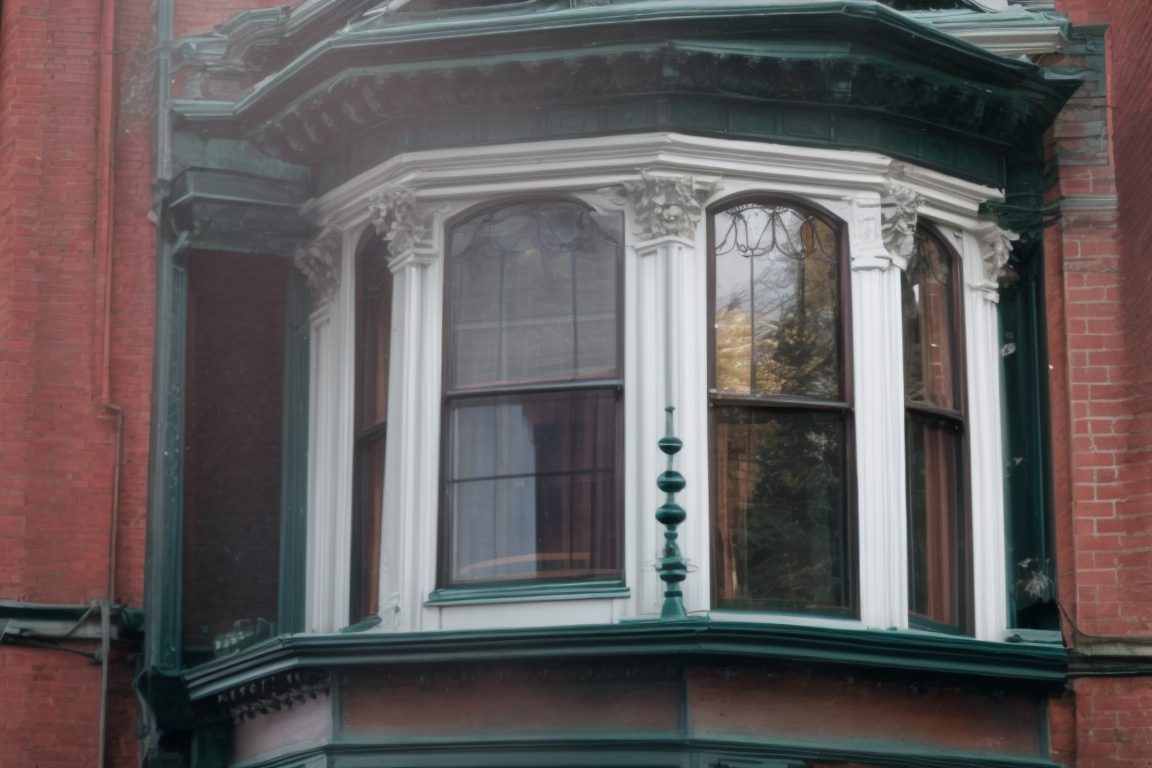
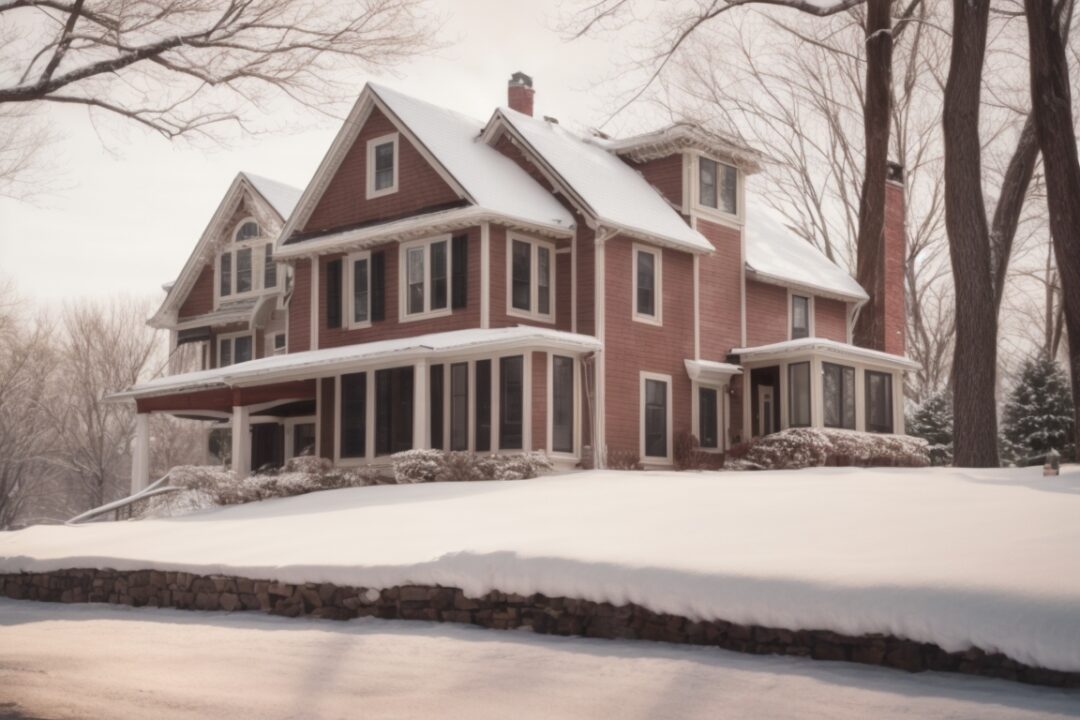
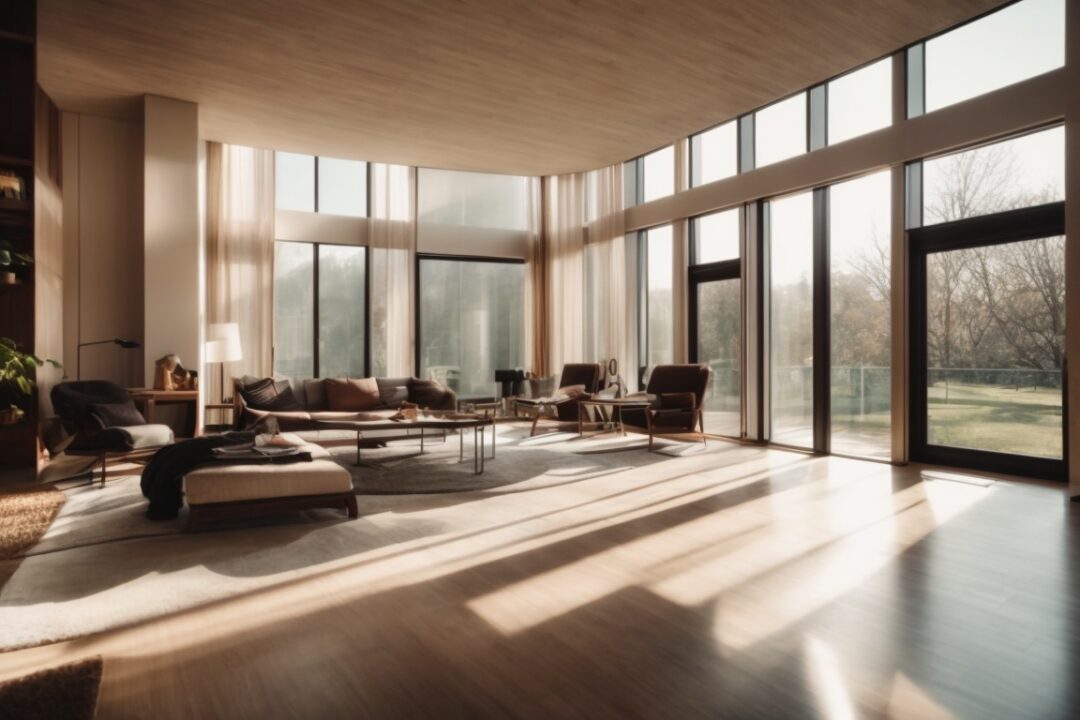
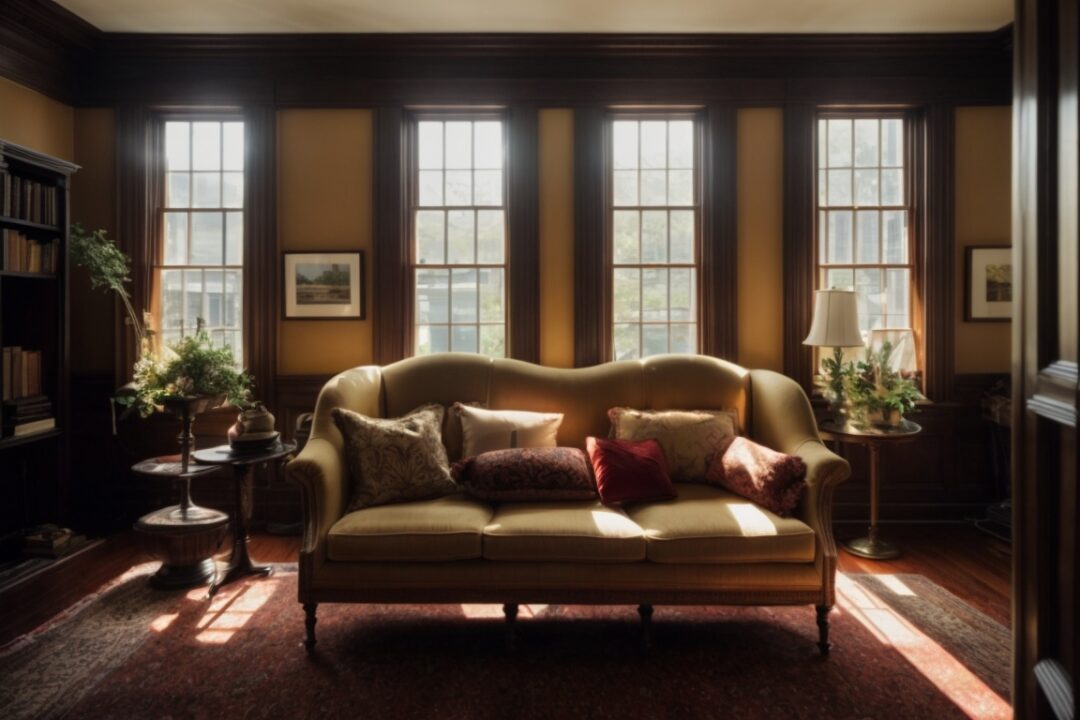
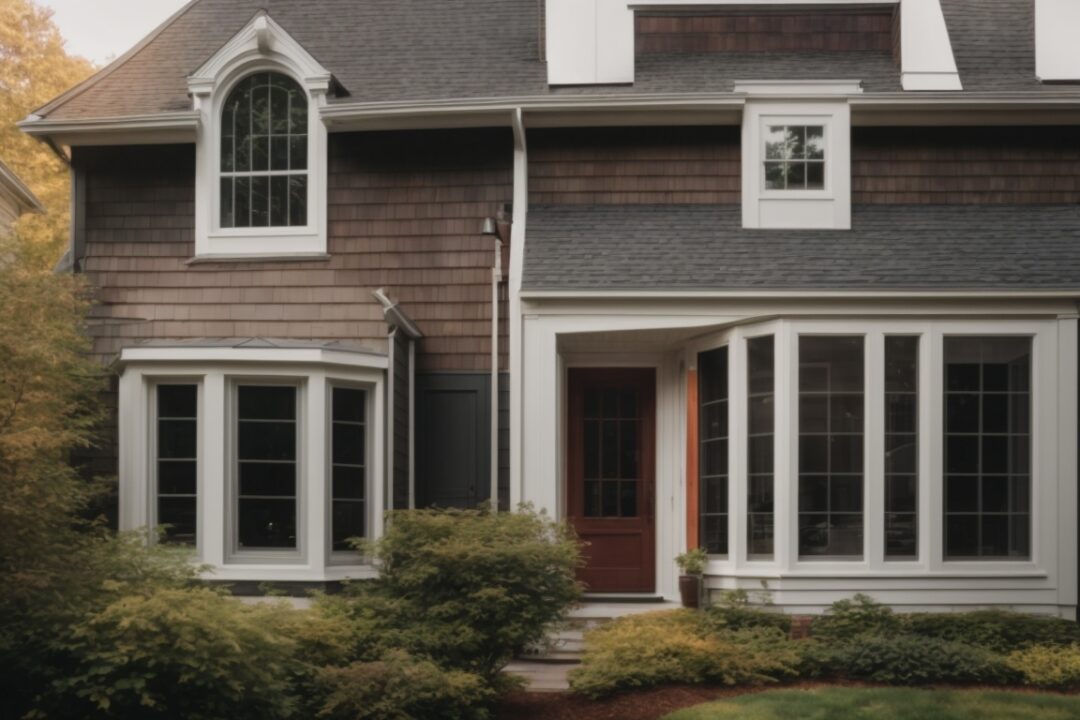
About The Author: Angus Faith
Angus Faith is an expert when it comes to all matters window tinting. After relocating to Boston from Scotland, he obtained a position as a window tint installer. Since then, Angus has successfully completed hundreds of window film installs in the Boston area, totaling over 250,000 square feet of film. He is an expert when it comes to selecting the perfect security, climate control, or decorative window film for the job and is well-versed with all the latest innovations from 3M, Vista, LLumar, and other leading brands. When he's not helping customers find creative solutions to their architectural concerns, Angus enjoys galivanting across the globe and exploring far-off places, perfecting his bagpipe playing skills, and solving crossword puzzles.
More posts by Angus Faith